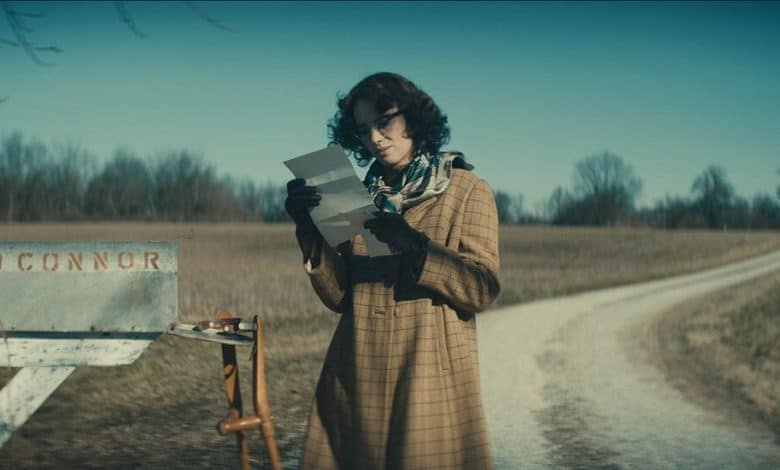What Ethan Hawke’s ‘Wildcat’ Gets Right About Flannery O’Connor

Nobody’s ever really known what to do with Mary Flannery O’Connor. They didn’t know when she was alive, and they haven’t known since she died in 1964, at 39, after years of battling through lupus to write her nervy, weird stories about Southerners, sin, religion and the God to whom she prayed so fervently. Her mother, Regina, with whom O’Connor lived for the last third of her life in Milledgeville, Ga., once asked her daughter’s publisher, Robert Giroux, if he couldn’t “get Flannery to write about nice people.” He couldn’t. Not that he would try.
The screen adaptations of O’Connor’s work have not quite captured her essence either, though some attempts have been more successful than others. A telling instance comes in “The Life You Save,” a 1957 TV adaptation of her short story “The Life You Save May Be Your Own,” starring Gene Kelly in his first small-screen role. He plays Tom T. Shiftlet, a one-armed vagrant who talks a woman into taking him on as her handyman, then marries her mute, deaf daughter, Lucynell. Tom and Lucynell drive off toward their honeymoon and then, at a diner, as Lucynell naps on the counter, Tom makes his getaway. In the story, Tom picks up a hitchhiker, who insults him before leaping out of the car, and Tom just keeps driving away. In the TV version, however — presumably to avoid offending viewers’ delicate sensibilities — Tom has a change of heart, returning to the diner to retrieve Lucynell after all.
That kind of moment would never have made it into an O’Connor story. She saw the episode, and “the best I can say for it is that conceivably it could have been worse,” she said. “Just conceivably.” (It paid for a new refrigerator for her and Regina.) She was not interested in writing tales of cheap redemption, or those that dramatize a change of heart that brings about a pasted-on happy ending, even if they’d have sold a lot better. Her stories are full of darker things, the “action of grace in territory held largely by the devil,” as she put it. A traveling Bible salesman steals a dour intellectual woman’s false leg. A young man berates his mother for her backward views on race until she has a stroke. A family on the way to a vacation is murdered by a roving serial killer. A pious woman beats the hell out of her reprobate husband after he gets a giant tattoo of Jesus on his back.
“Wise Blood,” John Huston’s 1979 adaptation of O’Connor’s 1952 novel of the same name, comes much closer to her uncomfortable tales of uncomfortable grace. The book was adapted by Benedict and Michael Fitzgerald, sons of Robert and Sally Fitzgerald, close friends of O’Connor (she lived with them for a while, and they edited “Mystery and Manners,” her 1969 collection of lectures and essays). “Wise Blood” is the story of a somewhat unhinged veteran named Hazel Motes (Brad Dourif), the grandson of a traveling preacher, who returns to his Tennessee home and tries to spread an antireligious gospel, only to discover he can’t quite get away from God. The Fitzgeralds chose Huston to direct in part because he, like Motes, was an avowed atheist, and they thought that’s what O’Connor would have wanted: a director who wasn’t afraid to skewer the pieties of her native South. But on the last day of shooting, Huston turned to Benedict Fitzgerald and said, “I’ve been had.” He realized he hadn’t managed to tell an atheist’s story at all. He’d told O’Connor’s story, and that meant it was soaked in hideous divine grace.
